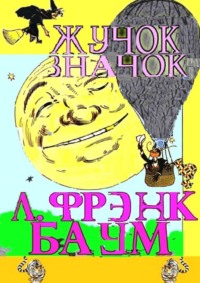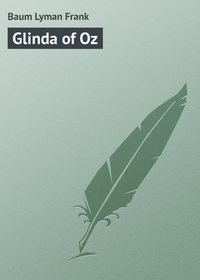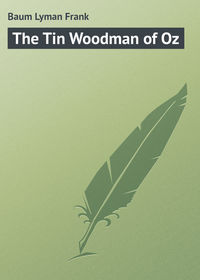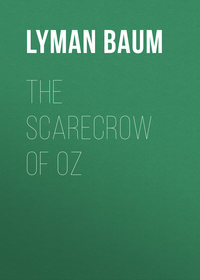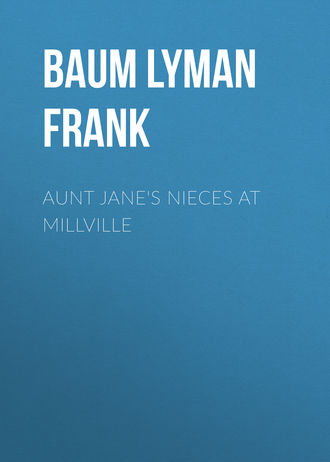 полная версия
полная версияAunt Jane's Nieces at Millville
"Can you send this to the Wegg farm?" asked Louise, opening her purse to make payment.
West smiled.
"I have no means of delivering goods," said he; "but if you can wait a day or two I may catch some farmer going that way who will consent to take it."
"Oh. Didn't Captain Wegg purchase his supplies in the village?" asked the girl.
"Some of them. But it is our custom here to take goods that we purchase home with us. As yet Millville is scarcely large enough to require a delivery wagon."
The nieces laughed pleasantly, and Beth said:
"Are you an old inhabitant, Mr. West?"
"I have been here thirty-five years."
"Then you knew Captain Wegg?" Louise ventured.
"Very well."
The answer was so frank and free from embarrassment that his questioner hesitated. Here was a man distinctly superior to the others they had interviewed, a man of keen intellect and worldly knowledge, who would be instantly on his guard if he suspected they were cross-examining him. So Louise, with her usual tact, decided to speak plainly.
"We have been much interested in the history of the Wegg family," she remarked, easily; "and perhaps it is natural for us to speculate concerning the characters of our predecessors. It was so odd that Captain Wegg should build so good a house on such a poor farm."
"Yes."
"And he was a sea captain, who retired far from the sea, which he must have loved."
"To be sure."
"It made him dissatisfied, they say, as well as surly and unsociable; but he stuck it out even after his poor wife died, and until the day of the murder."
"Murder?" in a tone of mild surprise.
"Was it not murder?" she asked, quickly.
He gave his shoulders a quiet shrug.
"The physician pronounced it heart disease, I believe."
"What physician?"
"Eh? Why, one who was fishing in the neighborhood for trout, and staying at the hotel. Old Dr. Jackson was in Huntington at the time, I remember."
The girls exchanged significant glances, and West noted them and smiled again.
"That murder theory is a new one to me," he said; "but I see now why it originated. The employment of a strolling physician would give color to the suspicion."
"What do you think, sir?" asked Patsy, who had been watching the man's expression closely.
"I? What do I think? Why, that Captain Wegg died from heart disease, as he had often told me he was sure to do in time."
"Then what made old Mr. Thompson go mad?" inquired Beth.
"The shock of his friend's sudden death. He had been mentally unbalanced for some time previous – not quite mad, you understand, but showing by his actions at times that his brain was affected."
"Can you explain what became of their money?" asked Louise, abruptly.
West gave a start, but collected himself in an instant and covered the action with another shrug.
"I cannot say what become of their money," he answered.
It struck both Beth and Louise that his tone indicated he would not, rather than that he could not say. Before they had time to ask another questioned he continued:
"Will you take the saucepan with you, then, or shall I try to send it in a day or so?"
"We will take it, if you please," answered Louise. But as he wrapped it into a neat parcel she made one more effort.
"What sort of a young man was Joseph Wegg?"
"Joe? A mere boy, untried and unsettled. A bright boy, in his way, and ambitious to have a part in the big world. He's there now, I believe."
He spoke with an air of relief, and handed Louise the parcel.
"Thank you, young ladies. Pray call again if I can be of service to you," he added, in a brisker tone.
They had no recourse but to walk out, which they did without further words. Indeed, they were all three silent until they had left the village far behind and were half way to the farm.
Then Patsy said, inquiringly:
"Well, girls?"
"We have progressed," announced Louise, seriously.
"In what way?"
"Several things are impressed upon my mind," replied the girl. "One is McNutt's absurd indignation when he thought we hinted that he was the murderer."
"What do you make of that?" queried Patsy.
"It suggests that he knows something of the murder, even if he is himself wholly innocent. His alibi is another absurdity."
"Then that exonerated Old Hucks," said Patsy, relieved.
"Oh, not at all. Hucks may have committed the deed and McNutt knows about it. Or they might have been partners in the crime."
"What else have you learned, Louise?" asked Beth.
"That the man West knows what became of the money."
"He seems like a very respectable man," asserted Patsy.
"Outwardly, yes; but I don't like the cold, calculating expression in his eyes. He is the rich man of this neighborhood. Do you suppose he acquired a fortune honestly in this forsaken district, where everyone else is poor as a church mouse?"
"Seems to me," said Patsy, discontentedly, "that the plot thickens, as they say in novels. If we interview many more people we shall find ourselves suspecting an army."
"Not at all, my dear," replied Louise, coldly. "From our present knowledge the murder lies between the unknown avenger and Hucks, with the possibility that McNutt is implicated. This avenger may be the stranger who posed as a physician and said Captain Wegg died of heart disease, in order to prevent the simple people from suspecting a murder. His fishing was all a blind. Perhaps McNutt was his accomplice. That staring scarecrow would do anything for money. And then we come to the robbery. If Hucks did the murder he took the money, and perhaps West, the hardware dealer, knows this. Or West may have arrived at the house after the mysterious stranger committed the deed, and robbed the two men himself."
"And perhaps he didn't," said Patsy, skeptically. "Do you know, girls,
I'd like to find Joe Wegg. He could put us right, I'm sure."
"Joe!"
"Yes. Why don't we suspect him of something? Or Ethel; or old Nora?"
"Do be sensible, Patsy," said Beth, impatiently.
But Louise walked on a way in silence. Presently she remarked:
"I'm glad you mentioned Joe Wegg. The boy gives me an idea that may reconcile many conflicting suspicions."
"In what way, Louise?"
"I'll tell you when I've thought it out," she replied.
CHAPTER XIV.
THE MAJOR IS PUZZLED
Ethel came frequently to visit the girls at the Wegg farm, and at such times Uncle John treated her with the same affectionate consideration he bestowed upon his nieces, and made her so cordially welcome that the little school teacher felt entirely at her ease. The girls did not confide to Ethel their investigation of the Wegg mystery, but in all other matters gave her their full confidence. Together they made excursions to the Falls, to the natural caves on the rocky hill called Mount Parnassus, or rowed on the lake, or walked or drove, as the mood seized them. But mostly they loved the shade of the pines and the broad green beside the quaint mansion Captain Wegg had built, and which now contained all the elements of a modern summer home.
Once Louise asked Ethel, casually, if she knew what "great trouble" had come to Hucks and his wife in their early life, but the girl frankly answered that the old people had never referred to anything of the kind in her presence.
Finally a telegram announced the arrival of Major Doyle to join the party at the farm. Patsy was in the seventh heaven of delight, and drove Joe over to the Junction to meet her father on the arrival of the morning train.
The Major was a prime favorite with all the party and his coming infused new life into the household. He was the type of educated, polished, open-hearted Irish gentleman it is always a delight to meet, and Uncle John beamed upon his brother-in-law in a way that betokened a hearty welcome. It was a source of much satisfaction to lug the Major over the farm and prove to him how wise Mr. Merrick had been in deciding to spend the summer on his own property; and the Major freely acknowledged that he had been in error and the place was as charming as anyone could wish. It was a great treat to the grizzled old warrior to find himself in the country, away from every responsibility of work, and he promised himself a fortnight of absolute rest, with the recreation of beholding his beloved Patsy as often as he pleased.
Of course, the girl would tell her father about the Wegg mystery, for Patsy had a habit of telling him everything; therefore the cousins decided to take the Major freely into their confidence, so as to obtain the benefit of his opinion. That could not be done the first day, of course, for on that day Uncle John insisted on displaying the farm and afterward carrying the Major a willing prisoner to watch him fish in the brook. But on the following morning the girls surrounded Patsy's father and with solemn faces recounted their suspicions, the important clues they had unearthed, and their earnest desire to right the great wrong that had been done by apprehending the criminal.
The Major smoked his after breakfast cigar and listened attentively. The story, told consecutively, was quite impressive. In spite of his long experience in buffeting the world, the old soldier's heart was still as simple as that of a child, and the recital awakened his sympathies at once.
"'Tis evident, me children," said he, in his quaint way, "that you've shtumbled on the inside of a crime that doesn't show on the outside. Many of the things you mention are so plain that he who runs may read; but I've remarked that it's just the things ye don't suspect in real life that prove to be the most important."
"That is true, Major," commented Louise. "At first it was just to amuse ourselves that we became amateur detectives, but the developments are so startling and serious that we now consider it our duty to uncover the whole dreadful crime, in the interests of justice."
"Just so," he said, nodding.
"But I'm sure Old Hucks is innocent!" declared Patsy, emphatically.
"Then he is," asserted the Major; "for Patsy's always right, even when she's wrong. I've had me eye on that man Hucks already, for he's the merriest faced villain I ever encountered. Do you say he's shy with you girls?"
"He seems afraid of us, or suspicious, and won't let us talk to him," answered Beth.
"Leave him to me," proposed the Major, turning a stern face but twinkling eyes upon the group. "'Twill be my task to detect him. Leave him to me, young women, an' I'll put the thumb-screws on him in short order."
Here was the sort of energetic confederate they had longed for. The Major's assurance of co-operation was welcome indeed, and while he entered heartily into their campaign he agreed that no mention of the affair ought to reach Uncle John's ears until the case was complete and they could call upon the authorities to arrest the criminal.
"It's me humble opinion," he remarked, "that the interesting individual you call the 'avenger' was put on the trail by someone here – either Thomas Hucks, or the timber-toed book agent, or the respectable hardware man. Being invited to come and do his worst, he passed himself as a docther on a fishing excursion, and having with deliberate intent murthered Captain Wegg, got himself called by the coroner to testify that the victim died of heart disease. A very pretty bit of scoundrelism; eh, me dears?"
"But the robber – who do you think he was?" asked Louise.
"That I've still to discover. You inform me that Hucks is eager for money and acts like a miser. I've seen the time I was eager for money meself, and there's not a miserly hair on me bald head. But exceptions prove the rule. I'll watch our smiling Thomas and make a report later."
Within half an hour he was telling Hucks a funny story and slapping the old man upon the back as familiarly as if he had known him for years. He found an opportunity that same day to give Thomas a dollar in return for a slight service, and was amazed at the eagerness with which the coin was clutched and the earnestness of the thanks expressed. It really did seem as if the man was fond of money. But when the Major tried to draw Hucks into speaking of his past history and of Captain Wegg's singular life and death, the old fellow became reserved at once and evaded the inquiries most skillfully.
That night, as the Major strolled in the orchard to smoke his last cigar after all the others had retired to bed, he noticed Hucks leave the back door of the lean-to with a parcel under his arm and pass hurriedly around the barn. After a little hesitation he decided to follow the man, and crept stealthily along in the shadow of the trees and buildings until he found himself at the edge of the berry-patch that was in the rear of the outbuildings. But there he paused irresolutely, for Thomas had completely disappeared.
The Major was puzzled, but decided to watch for the man's return. So he took a position where he could watch the rear door of the house and smoked patiently for nearly an hour before Hucks returned and let himself quietly in.
He said nothing to the girls next day of this mysterious proceeding, but on the following night again took his station in the orchard to watch.
Sure enough, as soon as the house was quiet the old servant came out with a bundle underneath his arm; but this time he led his blind wife by the other hand.
The Major gave a low whistle and threw away his cigar. The night was so dark that he had little difficulty in following the aged pair closely enough to keep their shadowy forms in sight, without the risk of being discovered. They passed around the barn and along a path that led through the raspberry bushes back of the yard. There were several acres of these bushes, and just now they were full-leaved and almost shoulder high. The path wound this way and that, and branched in several directions. Twice the Major thought he had lost his quarry, but was guided aright by their soft footfalls. The ground dipped here and there, and as they entered one of the hollows Major Doyle was startled to observe the twinkle of a dim light ahead. A minute later he saw the outlines of a little frame building, and within this Old Hucks and Nora presently disappeared.
CHAPTER XV.
THE MAN IN HIDING
Cautiously the Major approached the cabin, which seemed to have been built as a place for the berry pickers to assemble and pack their fruit. It was constructed of rough boards and had a little window in the side nearest the dwelling house and a door on the opposite side.
Creeping near to the window the Major obtained a clear view of the interior. Upon a dilapidated wicker settee, which had one end propped with a box, partially reclined the form of a man whose right arm was in splints and supported by a sling, while his head was covered with plasters and bandages. The man's back was toward the window, but from his slender form and its graceful poise the Major imagined him young.
Old Nora held the left hand of this mysterious person in a warm clasp, bending now and then to press a kiss upon it, while Hucks busied himself opening the parcel he had brought and arranging various articles of food on a rickety stand at the head of the couch. The old man's smile was more benevolent and cheery than ever, and his actions denoted that strange, suppressed eagerness the Major had marked when he had taken the money.
The three spoke little, and in tones so low that the spy outside the window failed to catch them. Soon the injured man began to eat, feeding himself laboriously with his left hand. But his hunger was quickly satisfied, and then he lay back wearily upon his pillows, while Nora tenderly spread a coverlet over him.
After this the old couple did not linger long. Hucks poured some water from a jug into a tumbler, glanced around the little room to see that everything was in order, and then – after he and Nora had both kissed the bandaged forehead – blew out the candle and retired.
The Major crouched low in the berry bushes until the couple had passed by; then he rose and thoughtfully followed after them.
Whatever Patsy's father might have thought of the Wegg farm mystery before, this adventure convinced him that the girls were not altogether foolish in imagining a romance connected with the place. And, notwithstanding Patsy's loyal defense of Old Hucks, he was evidently tangled up in the affair to a large extent, and could explain if he chose much that was now puzzling the girl detectives.
After careful thought the Major decided to confide in Uncle John, at this juncture, rather than in the nieces; since the latest developments were more fitted for a man's interference.
By good fortune the girls had an engagement the next day, and set out together in the surrey to visit Ethel Thompson and lunch with her in the rose bower, which was the pride of the little school teacher's garden. As soon as they were gone the Major hunted up Uncle John and said:
"Come with me, sir."
"I won't," was the brisk reply; "I'm going fishing, and whoever wishes my society must come with me."
"You'll not catch anything fishing, but you're very liable to catch something if you follow my lead," said the Major, meaningly.
"What's up, Gregory?"
"I'm not sure what it is, John." And then he carefully explained his discovery that an injured man was occupying the cabin in the berry patch, and seemed to be the object of the Hucks' tender care.
"It's the secrecy of the thing that astounds me most, sir," he added.
"If all was open and above board, I'd think little enough of it."
Uncle John's kindly interest was at once aroused, and he proposed that they go directly to the cabin and interview the man in hiding. Hucks being at the time busy in the barn, the two men sauntered into the berry patch without being observed, and then walked briskly along the winding paths until they sighted the building.
Pausing at the window, they saw the man still reclining upon his cot, and holding in his left hand a book – one of Patsy's, the Major observed – which he was quietly engaged in reading. Then they moved around to the door, which Uncle John pushed open.
Without hesitation, the two men entered and stood gazing down upon the strange occupant of the place.
"Good morning," said Mr. Merrick, while the Major nodded a greeting.
The man half arose, moving stiffly.
"Pardon me, sirs," he said, rather startled at the interruption; "I regret that I am physically unable to receive you with more courtesy."
The Major gazed into the partially bandaged face with a glimmer of awakening recognition.
"H-m! Ha! If I'm not mistaken," said he, "it's Joseph Wegg."
"Oh; is it?" asked Uncle John, looking upon the young man curiously.
"What's happened to you, Joseph?"
"Just an automobile accident, sir. The steering gear broke, and we went over an embankment."
"I see."
"Are you Mr. Merrick, sir."
"Yes."
"I owe you an apology for intruding upon your premises in this way, and beg you to forgive the seeming impertinence. But I've been rather unlucky of late, sir, and without this refuge I don't know what would have become of me. I will explain, if you will permit me."
Uncle John nodded.
"After I had squandered the money you paid me, through Major Doyle, for this farm, in a vain endeavor to protect a patent I had secured, I was forced to become a chauffeur to earn my livelihood. I understand automobiles, you know, and obtained employment with a wealthy man who considered me a mere part of his machine. When the accident occurred, through no fault of mine, I was, fortunately, the only person injured; but my employer was so incensed over the damage to his automobile that he never even sent to inquire whether I lived or died. At a charity hospital they tried to mend my breaks and tinker up my anatomy. My shoulder-blade was shattered, my arm broken in three places, and four ribs were crashed in. The wounds in my head are mere abrasions of the scalp, and not serious. But it has taken me a long time to mend, and the crowded, stuffy hospital got on my nerves and worried me. Being penniless and friendless, I wrote to Thomas and asked him if he could find a way to get me to the old farm, for I never imagined you would yourself take possession of the deserted place you had bought.
"Thomas and Nora have cared for me since I was born, you know, and the old man was greatly distressed by the knowledge of my sad condition. He did not tell me you were here, for fear I would hesitate to come, but he sent me the money you had given him and Nora for wages, together with all that the young ladies had kindly given him. I was thus enabled to leave the hospital, which I had come to detest, and journey to my old home. I arrived at the Junction on a night train, and Thomas met me with your surrey, drove me here under cover of darkness, and concealed me in this out-of-the-way place, hoping you would not discover me.
"I regret that I was thus foisted upon you, believe me, sir; but, being here, I have no means of getting away again. Thomas Hucks has had little worldly experience, and cannot realize the full extent of the imposition he has practiced. He feeds me from your table, and is hoarding up his money for me against the time I shall have recovered sufficiently to leave. I think that is the full explanation, Mr. Merrick."
Again Uncle John nodded.
"How are you?" he asked.
"Doing finely, sir. I can walk a little, and my appetite is improving. The doctors said my shoulder would never be very strong again, but I'm beginning to hope they were mistaken. My ribs seem all right, and in another ten days I shall remove the splints from my arm."
"You have no medical attendance?"
"Not since I left the hospital. But I imagine this pure, bracing air is better for me than a dozen doctors," was the cheerful reply.
"And what are your future plans?"
The young man smiled. He was little more than a boy, but his questioner noticed that he had a fine manly face and his eye was clear and steadfast.
"Nothing further than to get to work again as soon as I am able to undertake it," he said.
Uncle John looked thoughtfully, and drummed with his finger upon the little table.
"Joseph," he remarked, presently, "I bought this farm at a price altogether too small, considering its value."
The boy flushed.
"Please do not say that!" he exclaimed, hastily. "I am well aware that I virtually robbed you, and my only excuse is that I believed I would win my fight and be able to redeem the place. But that is over now, and you must not think that because I am ill and helpless I am an object of charity."
"Phoo!" said the little man; "aren't you accepting charity from Old
Hucks?"
"But he stands as a second father to me. He is an old retainer of my family, and one of my ambitions is to secure a home for him and Nora in their old age. No; I do not feel at all embarrassed in accepting money or assistance from Thomas."
"Young man," said Uncle John, sternly, "one of the follies of youth is the idea of being independent of the good-will of your fellow-creatures. Every person who lives is dependent on some other person for something or other, and I'll not allow you to make a fool of yourself by refusing to let me take you in hand. Your brain is affected – "
"It is not!"
"You are mentally unbalanced, and need a guardian. That's me. You are helpless and cannot resist, so you're my prisoner. Dare to defy me, dare to oppose my wishes in any way, and I'll have you put in a straight-jacket and confined in a padded cell. Understand me, sir?"
Joseph Wegg looked into the little man's round face until the tears filled his own eyes and blurred his vision.
"Won't you protect me, Major Doyle?" he asked, weakly.
"Not I," said the Major, stoutly. "This brother-in-law of mine, who connected himself with me without asking permission, is a perfect demon when 'roused, and I'll not meddle with any opposition to his desires. If you value your life and happiness, Joseph Wegg, you'll accept Mr. Merrick as a guardian until he resigns of his own accord, and then it's likely you'll wish he hadn't."
"I don't deserve – " began the young man, brokenly; but Uncle John quickly interrupted him.
"No one deserves anything," said he; "but everyone gets something or other, nevertheless, in this vale of tears. If you'll kindly remember that you've no right to express an opinion in the presence of your guardian, we'll get along better together. Now, then, you're going to leave here, because the place is not comfortable. My guests fill every room in my house, so you can't go there. But the hotel in Millville is a cheerful-looking place, and I've noticed some vine-covered windows that indicate pleasant and sunny rooms. Major, go and tell Hucks to hitch that groaning, balky Daniel to the ancient buggy, and then to drive this young man over to the hotel. We'll walk."


